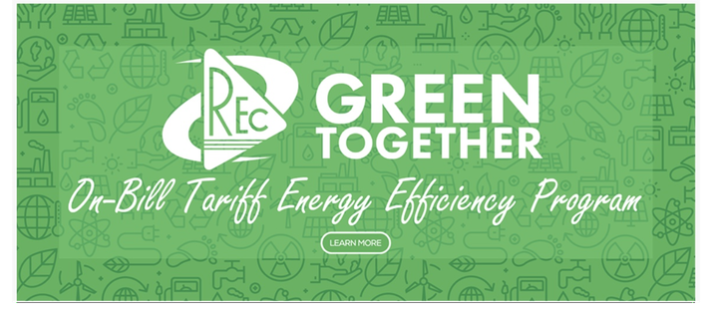9.3.21 - New Pay As You Save® Programs coming to VA & MN
- libertyhomes123
- Sep 3, 2021
- 3 min read
New Inclusive Utility Investment Pay As You Save Programs are coming fast and furious! As promised this week we’ll be covering last week’s Rappahannock Electric Cooperative’s Greening Together Stakeholder meeting, PLUS an update from Minnesota, where the City of Minneapolis and CenterPoint Energy formally filed a joint petition for a Tariff On Bill pilot program with the Minnesota Public Utilities Commission.

Rappahannock Electric Cooperative Holds Final Stakeholder Meeting
Rappahannock Electric Cooperative (REC) held the third and final virtual Greening Together On-bill Tariff Energy Efficiency Program stakeholder meeting on 8.26.21. REC is developing the program under VA SB 570 which provides pre-approval for on-bill tariff programs for energy efficiency offered by Virginia electric cooperatives. Rappahannock has been a leading advocate for inclusive utility investment programs in Virginia and was one of the driving forces behind SB 570. Prior to the virtual meeting, REC provided links to its proposed Program Design and FAQ documents. Although not marked as such REC indicated that these are draft and not final documents.
The workshop presentations reviewed key features of the program design. Unlike the first two workshops, this one did not include breakout sessions following the presentations. Instead REC took comments via Zoom chat and invited stakeholders to submit written comments via email to Joyce Bodeh, REC’s program manager. In the chat, stakeholders identified a number of concerns which REC did not immediately address:
The low proposed program volume (200-400 homes for a coop with 140,000 member-owners)
The limiting of eligibility to member owners who live in all electric homes
The requirement that customers be current on their accounts to be eligible when the households that are struggling are the ones that can most benefit from the program
A lack of information on how REC was going to ensure contractors from historically disenfranchised black, indigenous, people of color communities would be actively recruited to participate
This week Joyce Bodeh actively reached out to the commenting stakeholders (including LibertyHomes) to discuss concerns and solutions, making it clear Rappahannock recognizes it needs additional direct stakeholder engagement before finalizing a program design. We hope REC will also consider creating an open public comments document to create a completely transparent process in which all stakeholders can provide input, see the input of others, and respond.
The draft Implementation Plan laid out how REC expects the process to proceed in a Timeline of Key Deliverables. The timeline has a final program design submitted in a Board Approval Resolution in October, contractor recruitment occuring in November and December, and contractors selection and member-owner enrollment in early 2022. The full scale program is scheduled to roll out in 2023.

City of Minneapolis and CenterPoint Energy Minnesota Gas Tariff on Bill pilot program On September 1, 2021, CenterPoint Energy Resources Corp., d/b/a CenterPoint Energy Minnesota Gas, (CenterPoint) and the City of Minneapolis (Minneapolis) submitted a petition to the Minnesota Public Utilities Commission for a Tariffed on Bill (“TOB”) pilot program. The filing (Docket No. G-0008/M-21-377) largely follows best practices but has several features that are likely to draw comment from intervenors:
The program design requires prospective participants to make a $100 co-pay in order to receive the initial assessment or prove income qualification to have it waived. This feature will cripple the program from the outset if it is retained. Eliminating ALL of the upfront barriers to participation is a fundamental feature of PAYS programs, which are the only type of tariffed on-bill program with strong consumer protections that have been approved by commissions to date.
The pilot proposes to do only 1500 upgrades over three years which seems like an overly modest goal for a city the size of Minneapolis.
The pilot proposes to deliver a constant 500 upgrades per year for three years, instead of growing geometrically by 3x or 4x in each successive year. The pilot design needs to pilot how to scale, in addition to piloting the mechanics of the program.
The pilot will run for three years, an overly extended period for a program model that other utilities have already implemented successfully and much longer than other IOUs; Evergy Missouri’s pilot, for example, will run for 12 months and then move to scale.
Time will tell whether these features are adjusted in the final program design. PAYS Pals who wish to follow this docket as it develops can do so by going to Manage My Subscriptions on the Minnesota Public Utilities Commission Website. It will prompt you to create an account if you don’t have one. If/once you do, select the button “Manage My Subscriptions” and make selections so that it looks like this:





Comments